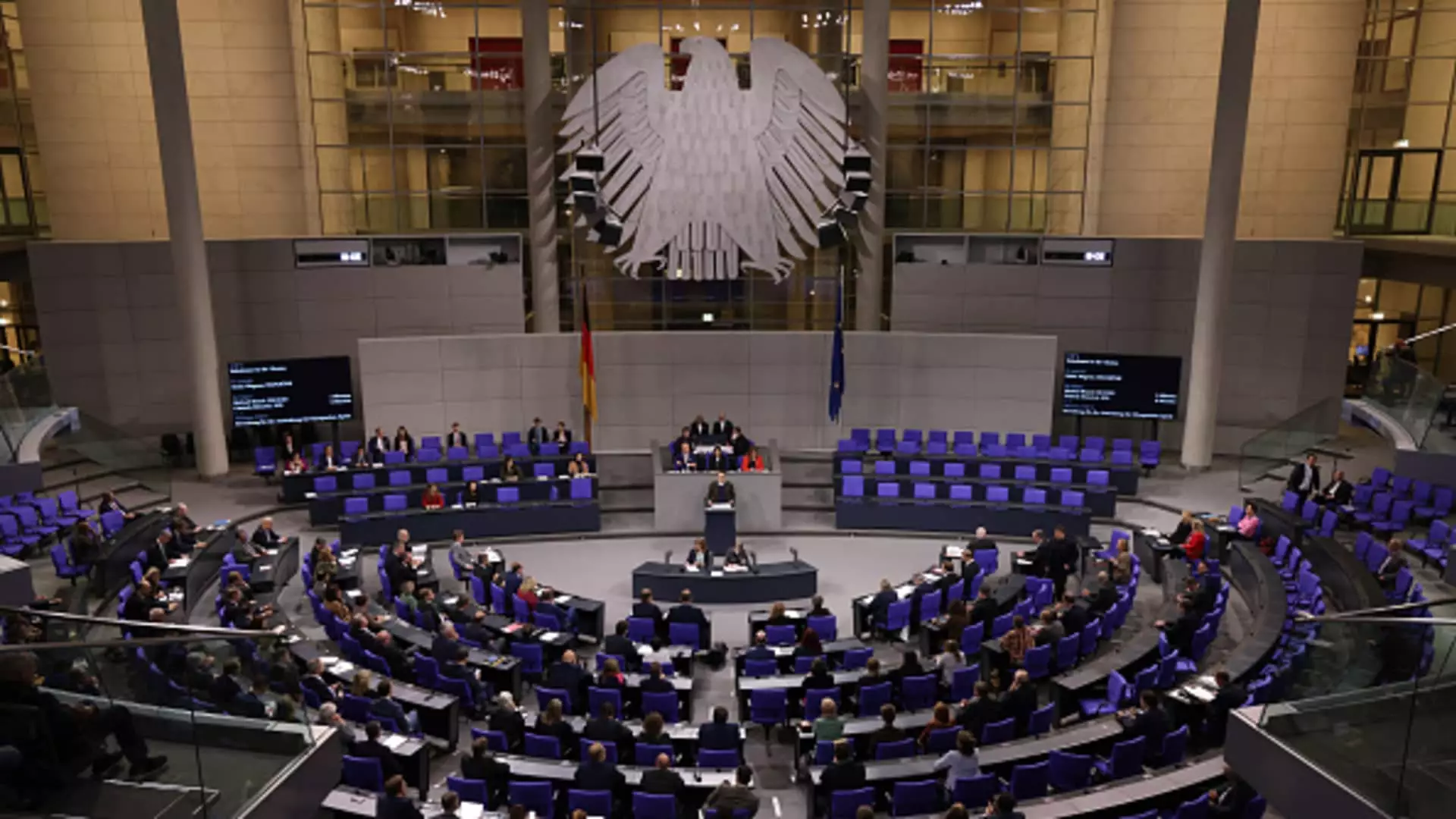On a pivotal day in German politics, President Frank-Walter Steinmeier performed a ceremonial but significant act by dissolving the Bundestag, the lower house of parliament, in preparation for snap elections scheduled for February 23. This action comes in the wake of a tumultuous period marked by the disintegration of Chancellor Olaf Scholz’s three-party coalition, raising critical questions about the future governance of Germany. Steinmeier emphasized the necessity for a stable and functional government during these challenging times, expressing that “reliable majorities in parliament” are essential for effective decision-making. The urgency reflected in his call for early elections underscores a broader sentiment that political stability is paramount to navigating current crises.
In his address following the dissolution, Steinmeier called for an electoral process that emphasizes fairness and transparency. He identified external influences that jeopardize the integrity of democracy, referencing recent electoral interference in Romania and the overwhelming presence of misinformation on social media platforms like X. His remarks underline the heightened sensitivity towards safeguarding democratic principles at a time when trust in political institutions is increasingly fragile. The president’s emphasis on integrity during the electoral process signifies a deep concern for maintaining the democratic process in what could be a contentious campaign.
Chancellor Olaf Scholz, a member of the Social Democratic Party (SPD), faces an uphill battle as he leads a caretaker government following the loss of a confidence vote. The recent departure of the Free Democrats from the coalition has left the SPD devoid of a legislative majority, effectively signaling the end of an era for Scholz’s administration. This unprecedented political shift has triggered a flurry of campaign activity as potential successor Friedrich Merz of the conservative faction gains momentum, buoyed by public discontent regarding economic policies perceived as stifling growth. With the conservative party leading the polls by over ten points, the political calculus for the upcoming elections appears daunting for the Social Democrats.
The emergence of the far-right Alternative for Germany (AfD) further complicates the political landscape, positioning it just ahead of the SPD in public favor. The refusal of mainstream parties to ally with the AfD adds another layer of complexity, making coalition-building a challenging endeavor. This situation not only reflects deeper societal divisions but also throws into relief the challenges of governance in a fragmented parliament. As political parties prepare for the elections, their strategies will likely pivot around navigating these complicated alliances while addressing voters’ concerns.
As Germany stands on the brink of an electoral reset, the stakes are high for the nation’s political future. The call for stability and integrity resonates amid a backdrop of uncertainty and factionalism. For voters, the upcoming elections will be more than just a vote; they represent an opportunity to redefine the political landscape and reestablish trust in governance. Whether the SPD can regroup and present a compelling case to the electorate remains to be seen, but one thing is clear—the path Germany chooses will shape not only its immediate political future but also its long-term standing as a leader in Europe.


Leave a Reply